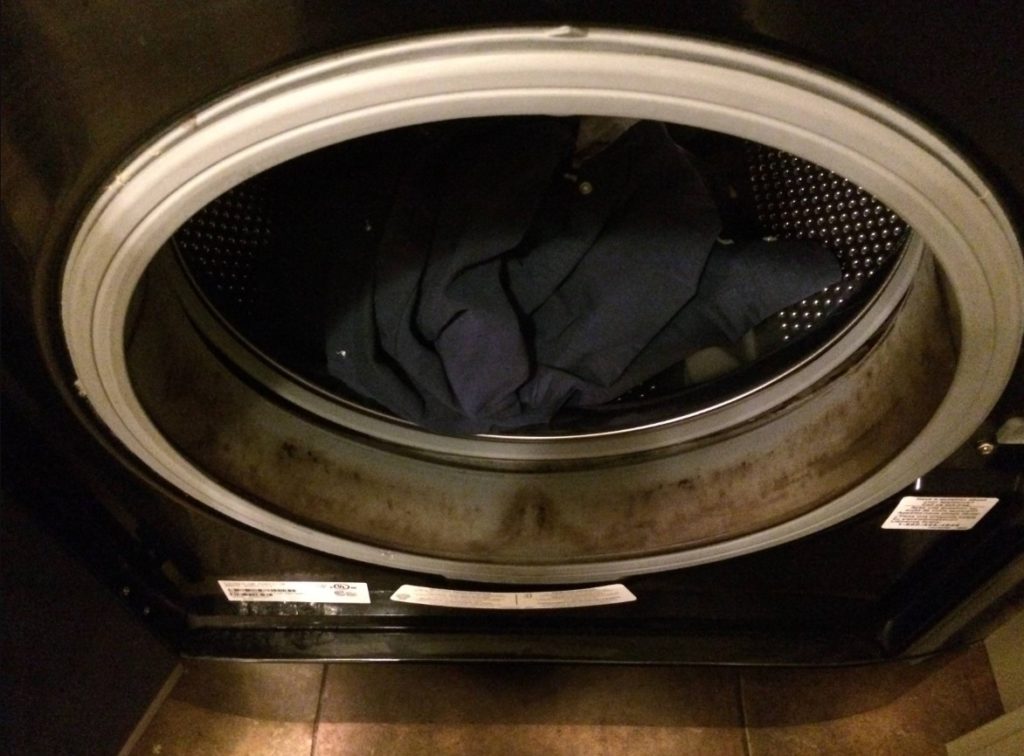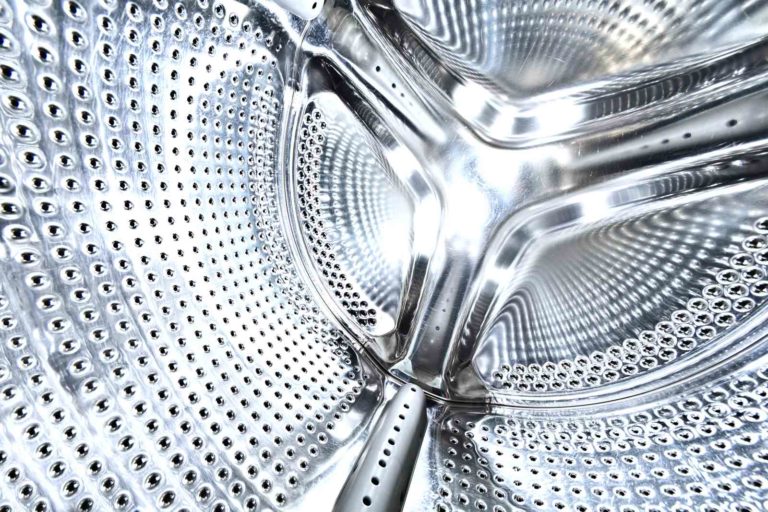Washing machines have the potential for growing mold and bacteria due to the inherently moist environment. Front loaders especially tend to harbor mold and bacteria, because water accumulates behind the rubber seal.
This means washers could be teaming with mold and bacteria, without visible mold growth. This problem has become so inherent that companies such as Frigidaire and Whirlpool have faced class-action law suits with claims of mildew mold and bacterial growth.
Front load machines are extremely common. Take the sniff test. Environmental tests have shown that the odor emanating from front-loading machines is a combination of a microbial chemical release, similar to those found in the VOC’s of paints and petroleum-based products. These are suspected of increasing potential health risks due to chronic exposure.
Use your senses to assess the health of your appliance.

Use your sight. Do you see physical discoloration of rubber gaskets and laundry dispenser drawers? If your washer is dirty, so are you clothes. You may even notice black or rusty marks on them after a wash cycle.
Take the touch test. Does the interior of your washer feel slimy or slick? Even if you have no discoloration, a slick slimy feeling could be the signs of a potential bacterial or mold overgrowth problem.
Take the sniff test. Do your clothes smell musty after washing, almost like a ‘turtle pond’? Does your washer emanate an egg or sulfur smell? Women typically have a more acute sense of smell than men. If it smells “not right” it probably is not right.
Just as you would clean toilets and showers, it is important to clean/disinfect and sanitize the inside of your machine every six months. This includes gaskets, rubber sealing and all touch surfaces. Clean disinfect the areas not seen such as the barrel or drum. Remove all dispensers to thoroughly clean and disinfect. And don’t forget to remove, clean, disinfect and then sanitize (if not replace) any filters your washer may use.
It may be time to look into a deep clean sanitization of your expensive appliance.



